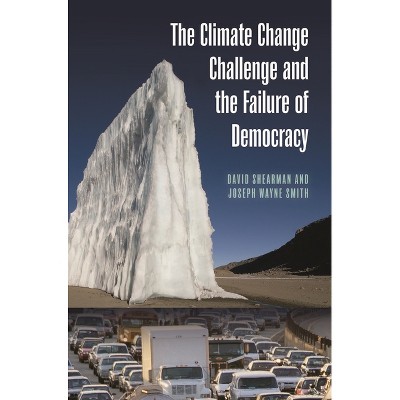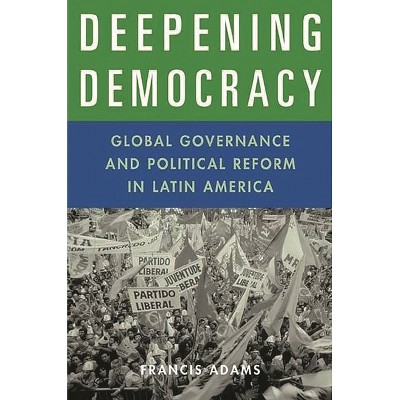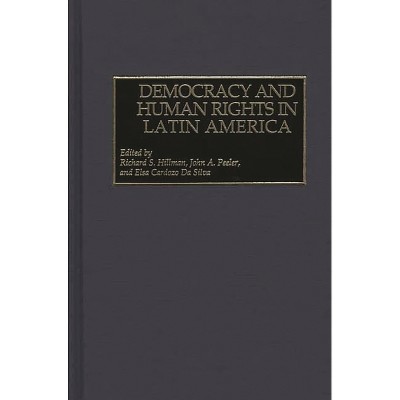Sponsored

Democracy at Work - by Richard Munch & Richard M?nch (Hardcover)
In Stock
Sponsored
About this item
Highlights
- Münch and his colleagues examine how democracy works in the practice of political regulation.
- About the Author: RICHARD MÜNCH is Professor of Sociology at Otto-Friedrich-University of Bamberg, Germany.
- 272 Pages
- Science, Environmental Science
Description
About the Book
Münch and his colleagues examine how democracy works in the practice of political regulation. Based on empirical research on the politics of clean air in the United Kingdom, France, Germany, and the United States, they provide a comparative sociological perspective. Thus, they look at social change and social integration rather than issues of governance and administration in terms of effectiveness and democratic legitimation.
The analysis looks at how different forms of democracy given in the four countries achieve more or less in the political regulation of clean air in terms of societal innovation, conflict settlement, and consensus formation. They concentrate on the network of actors involved, their professions included with their concepts of rationality, the institutional rules of policymaking, and the cultural ideas that are invoked in the legitimation of procedures and decisions. While each country has developed a peculiar form of democracy-representative democracy in the UK, etatist-republican democracy in France, consensus and rule of law democracy in Germany, and multilevel pluralist competitive democracy in the US-they conclude that challenges of the established regulatory style and political order are pushing each country towards a more open democracy. Scholars and students in comparative sociology and political science as well as environmentalists will find the study of particular interest.
Book Synopsis
Münch and his colleagues examine how democracy works in the practice of political regulation. Based on empirical research on the politics of clean air in the United Kingdom, France, Germany, and the United States, they provide a comparative sociological perspective. Thus, they look at social change and social integration rather than issues of governance and administration in terms of effectiveness and democratic legitimation.
The analysis looks at how different forms of democracy given in the four countries achieve more or less in the political regulation of clean air in terms of societal innovation, conflict settlement, and consensus formation. They concentrate on the network of actors involved, their professions included with their concepts of rationality, the institutional rules of policymaking, and the cultural ideas that are invoked in the legitimation of procedures and decisions. While each country has developed a peculiar form of democracy-representative democracy in the UK, etatist-republican democracy in France, consensus and rule of law democracy in Germany, and multilevel pluralist competitive democracy in the US-they conclude that challenges of the established regulatory style and political order are pushing each country towards a more open democracy. Scholars and students in comparative sociology and political science as well as environmentalists will find the study of particular interest.Review Quotes
"The authors are to be congratulated on a most systematic and scholarly comparative study of environmental regulation within several major industrial states-the UK, USA, France and Germany. Through a rigorous application of political sociology the authors present fresh insights into both the politics of clean air policies in these states as well as the challenges posed by environmental politics to the tenets of liberal democracy. This work is likely to become a significant reference point in the growing literatures on the comparative politics of environmental regulations."-Anthony McGrewn Professor Southampton University, UK
About the Author
RICHARD MÜNCH is Professor of Sociology at Otto-Friedrich-University of Bamberg, Germany. Professor Münch has published extensively on sociological issues. Christian Lahusen, Markus Kurth, Cornelia Borgards, Carsten Stark, and Claudia Jaub were members of Münch's research team in Duesseldorf and Bamberg.Shipping details
Return details
Trending Non-Fiction











